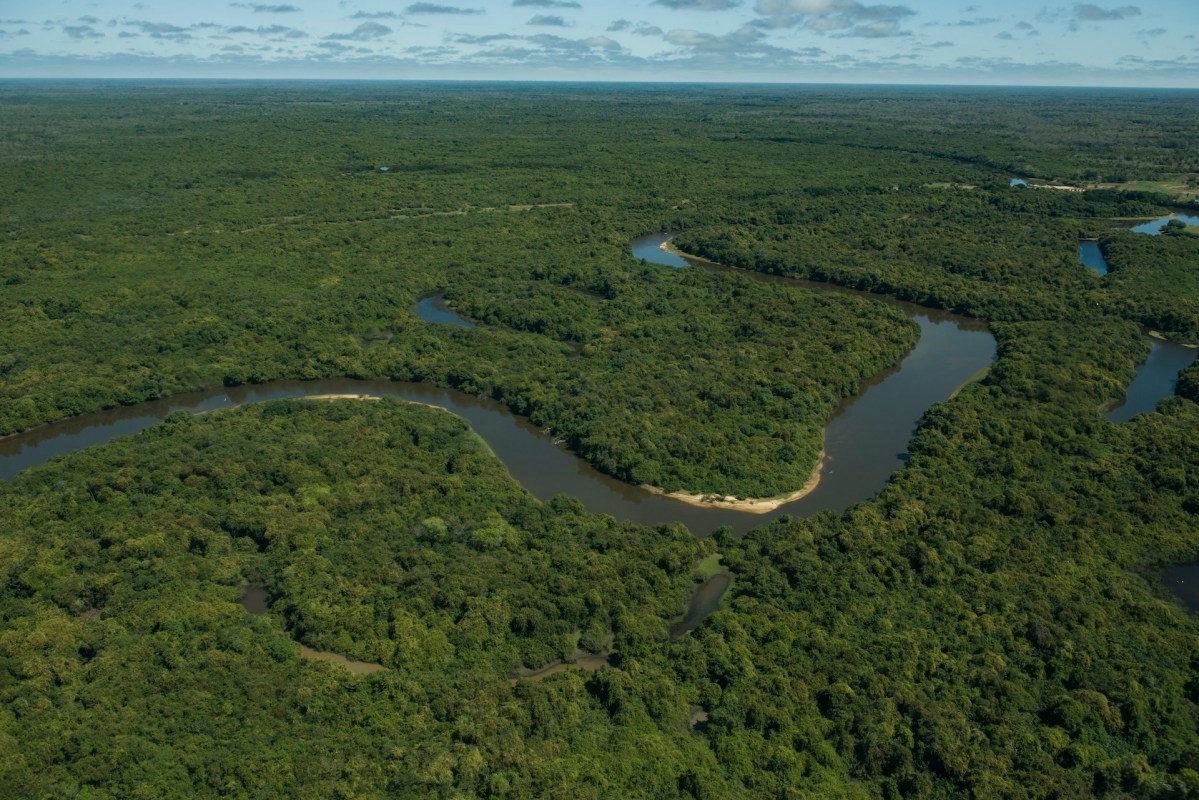A convergence of three factors has reportedly left parts of Brazil's Amazon River at their lowest levels in 120 years, with unrecognizable before-and-after aerial photos of the waterway serving as a wake-up call.
What's happening?
Meghie Rodrigues of the scientific journal Nature reported on Nov. 14 that deforestation, unusually warm waters in the northern Atlantic Ocean, and an El Niño climate pattern are contributing to a historic drought.
Several days later, Peter Dynes (@PGDynes) shared aerial photos of the Amazon on X, formerly known as Twitter, including the Rio Negro tributary. The photo on the right side shows an abundance of brown, dry earth — in stark contrast to the photo of a thriving river on the left.
"This is not just a local crisis, but a global alarm bell," one user commented.
What is happening in #Brazil has never been seen before by anyone alive today. Parts of the #Amazon River are at their lowest in 120 years. Low water affects navigation, power & water supplies, and agriculture for the region's indigenous population. pic.twitter.com/wYieuO7zQ9
— Peter Dynes (@PGDynes) November 16, 2023
While the cycle of El Niño is expected every two to seven years, as Nature pointed out, our changing global temperatures have disrupted its pattern, and human activities during the drought have made conditions more hazardous.
Workers have been clearing the rainforest for agriculture at record rates in recent years, with 60% of the trees either gone or degraded. The dry air of El Niño has led those workers to burn the trees as a method of disposal.
"We would sleep and wake up surrounded by smoke," University of Oxford ecosystems researcher Erika Berenguer told Nature. "This is collective poisoning."
Why is this important?
Sadly, the low water levels and deforestation have negatively impacted local communities, affecting their access to food and clean water, and the ripple effects may not stop there.
The Amazon rainforest soaks up one-quarter of all carbon dioxide absorbed by land, according to National Geographic, meaning its deforestation contributes to the dangerous overheating of our planet and further stresses our oceans.
A new study in Nature also found that "deforestation is directly leading to drought," as reported by NPR's Lauren Sommer, while the continued destruction of the rainforest may ultimately affect access to some types of medication.
A study from the Journal of Integrative Medicine published by ScienceDirect noted that "25% of drugs used in modern medicine are derived from rainforest plants. Researchers believe that around 70% of rainforest plants have anticancer properties."
What is being done to help?
Brazil has begun implementing policies to protect the rainforest under the leadership of President Luiz Inacio Lula da Silva, who was elected for his third term in 2022, and the country is already seeing results.
In May, Reuters' Gabriel Araujo reported that "deforestation in Brazil's Amazon rainforest fell 68% in April from the previous year."
Reducing the amount of heat-trapping gases in our atmosphere can also make an impact from afar, including by unplugging energy-sucking appliances when they aren't in use.
Join our free newsletter for cool news and cool tips that make it easy to help yourself while helping the planet.









